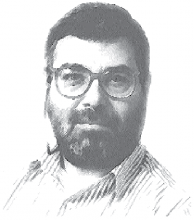You are here
A critical Palestinian shift worth watching
May 19,2016 - Last updated at May 19,2016
On this 68th anniversary of the creation of the state of Israel and the exile and refugeehood of half of the Palestinian Arab population of 1948, Israelis, Zionists and their friends should be concerned because something significant is taking place in the mindset and political struggle attitudes of many Palestinians around the world that will increase the pressure on Israel to come to an honourable peace that allows the two peoples to live side by side in security and sovereignty.
That something is simply the realisation by most Palestinians and their supporters that the traditional mechanisms of struggle in this conflict are increasingly less valid; a whole new political battleground is taking shape, in which Palestinians and Israelis are much more evenly matched, which could one day spark reasonable and honourable compromises for the sake of both people’s long-term wellbeing.
The battle for the future of Israel and Palestine is shifting its centre of gravity and means of main action in four important arenas.
In the years ahead we should see less military action and more political-diplomatic engagements; less bilateral discussions monopolised fruitlessly by an Israel-biased and diplomatically hapless United States, and more negotiations in neutral and inclusive international forums like the United Nations and UN-legitimised international peace conferences; less shaping of outcomes by military balance of power and more by the requirements of international law and conventions, and UN resolutions that respect both sides’ rights; and less deal-making behind closed doors in Western capitals among a handful of politicians, and more public and civic political action by masses of citizens around the world who seek equality and security for Palestinians and Israelis alike.
The Palestinian population of some 1.5 million in 1947-48 has now reached around 8 or 9 million; nobody knows the actual figure, given the occupied, dispersed and disenfranchised nature of the Palestinian people since 1948.
They are going nowhere except to their rightful goal of national reconstitution and rehabilitation, alongside a legitimate but non-expansionist Israeli state that comes to terms with the reality of Palestinian nationhood and the need to end Palestinian refugeehood.
The important new fact is that Palestinians and their allies are conscious today of the need for political struggle around the world by tapping the significant public support that exists globally for Palestinian-Israeli equal rights in adjacent sovereign states.
The evolving Palestinian national struggle reduces emphasis on ineffective, occasional, military action, reliance on well-meaning but equally unproductive pan-Arab military and diplomatic action, and pleading petitions to international agencies and world powers in favour of mobilising global public opinion and, consequently, spawning political initiatives by major states.
The trend in these arenas has focused heavily on promoting the boycott, divestment and sanctions (BDS) movement against Israeli human rights abuses of Palestinians in three domains: inside Israel, in the 1967 occupied territories, and among Palestinian refugees in exile.
The BDS movement that was launched years ago by Palestinian civil society activists, mirrors the successful international efforts half a century ago to pressure apartheid South Africa to end its racist ways.
It is the most dramatic and important sign of Palestinians everywhere engaging in non-violent, civil, political and law- and ethics-grounded action to achieve Palestinian rights and push the two sides to a negotiated, just peace agreement.
Zionists and Israelis howl in protest that BDS is a form of anti-Semitism, and their echo chamber minions like Hillary Clinton and others howl in unison, but to no avail, because they are lying, and the world knows it.
There is only steady growth in the circle of activists around the world applying BDS actions to quell Zionist excesses and promote a just peace that equally respects the rights of both sides.
From only leftist fringe groups a decade ago, BDS adherents today have expanded to include mainstream churches, labour movements, academic societies, and some major financial institutions and retail businesses in Europe that wish, rightly, to dissociate themselves from the colonial expansion and exploitation that Israel practises in the occupied territories.
Hardline colonial Israelis, Zionists and their shrinking coterie of political echo chambers in Western capitals would do well to appreciate the growing realisation by Palestinians everywhere that political activism is more effective than military action, and global public activism is more effective than private pleas.
Arab and other supporters of Palestinians, and of justice and equality for all, would do well to grasp the opportunity at hand and build on this important shift among Palestinians.
This view is mirrored by only a minority of Israelis, but by a growing number of politically sensible Jews around the world, who see the global public opinion trends that rightly worry Israeli hardliners, who now have to face the consequence of their own colonial actions over many decades.
These trends will only accelerate over time. Keep watching.













